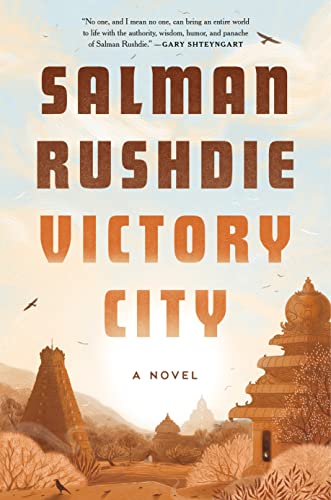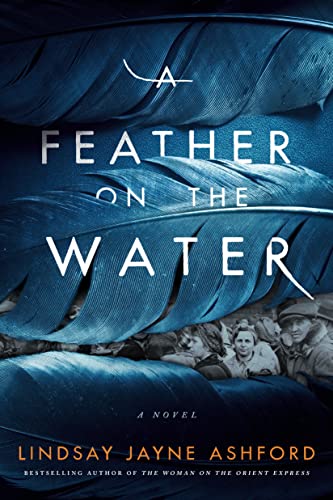Jan’s Cataract Surgery
Estimated reading time: 3 minutes, 4 seconds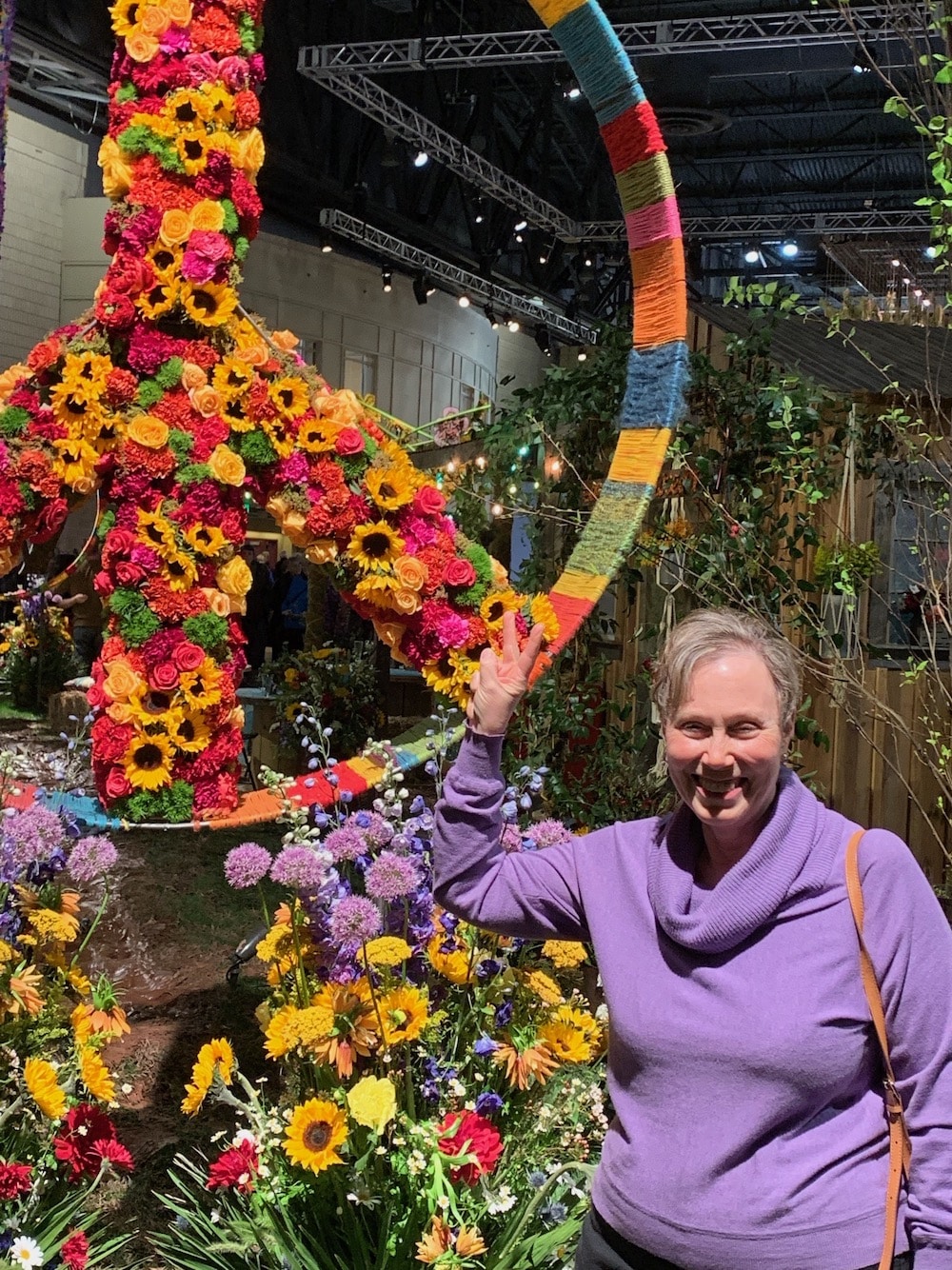
Blurry No More!
The Parkway was busy, but the traffic was moving. Jan was very quiet and barely responded to my requests to begin a conversation. My thumb lowered the volume on the radio almost to the point that we could scarcely hear NPR. We exited and stopped at the traffic light. My head turned slightly toward her, and I said, “I love you! I know you are worried, but I am here now and forever for you!”
Jan responded with a weak and shaky voice. “I know, I know….”
We parked, and I came around the car and opened the door for her. I hugged her, and we walked toward the entrance.
When we had scheduled the appointment, we were both exuberant at the prospect that the laser surgery would remove cataracts and give her almost perfect vision. So much had happened since then to dim our optimism. Yesterday, we got a preliminary diagnosis from Dr. Saksena
I never thought I would hear a doctor say that Jan had blood cancer. Her family did not have a history of cancer.
I held her hand and took the lead on the registration process. I had not asked if she wanted me to do that, and I presumed that caregivers should do it. Once I began and did not question my role, I asked the staff person if Jan could sit down while I paid the bills and took care of the paperwork. I helped Jan to the nearest empty chair.
When I finished, I sat next to her. She asked for water, and I got it for her. She took off her Fitbit and ring and placed them in a baggie in her purse. She handed her bag to me, and I held her hand and kissed her lightly on her lips.
They called her name, and I helped her up and walked her to the nurse waiting to take her to surgery. I kissed her and reminded her that I loved her and would be here for her.
Walking back to my seat, a woman looked at me with my wife’s purse over my shoulder. “I know it is always difficult to get accessories to match my outfit,” I said. She chuckled and responded, “You did good!”
Taking a break from reading, I took a walk down the hallway. My mind raced down a thousand rabbit holes. What if, with almost perfect vision, she finally could see me and decided that she could do better. I knew that was as likely as my winning the lottery, even though I never purchased tickets. Yet, it frightened me.
Shortly after I returned to the waiting room, they called my name. The surgery was a success! She would be out in a few minutes. I moved to a chair as close as I could to the doorway so I could see the love of my life as soon as she exited.
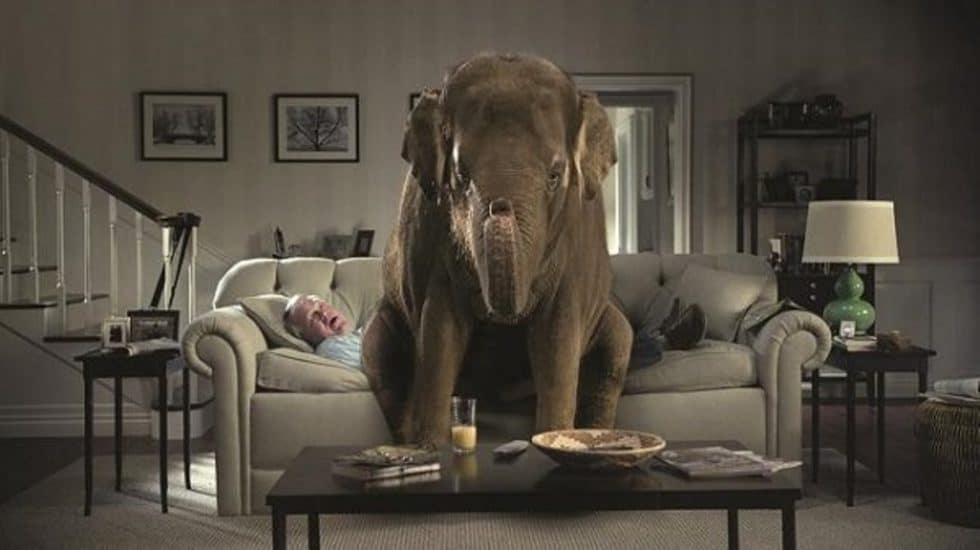
As she came out with the nurse’s help, it was apparent she was weak. I held her close to me as we walked to the car. Driving home without the radio, I chatted as much as possible to see how she was and what I could do to help her.
That was two years ago today. Life can change in an instant, and sometimes we never know why. This time the blood cancer diagnosis was the cause. It seemed impossible that she had a life-threatening disease, but it was now the elephant in the room.

This work is licensed under a Creative Commons Attribution-NonCommercial 4.0 International License.
After almost 48 years, I recently lost my wife, Jan Lilien. Like The Little Prince, Jan and I believed that “The most beautiful things in the world cannot be seen or touched, they are felt with the heart.” This blog is a collection of my random thoughts on love, grief, life, and all things considered.


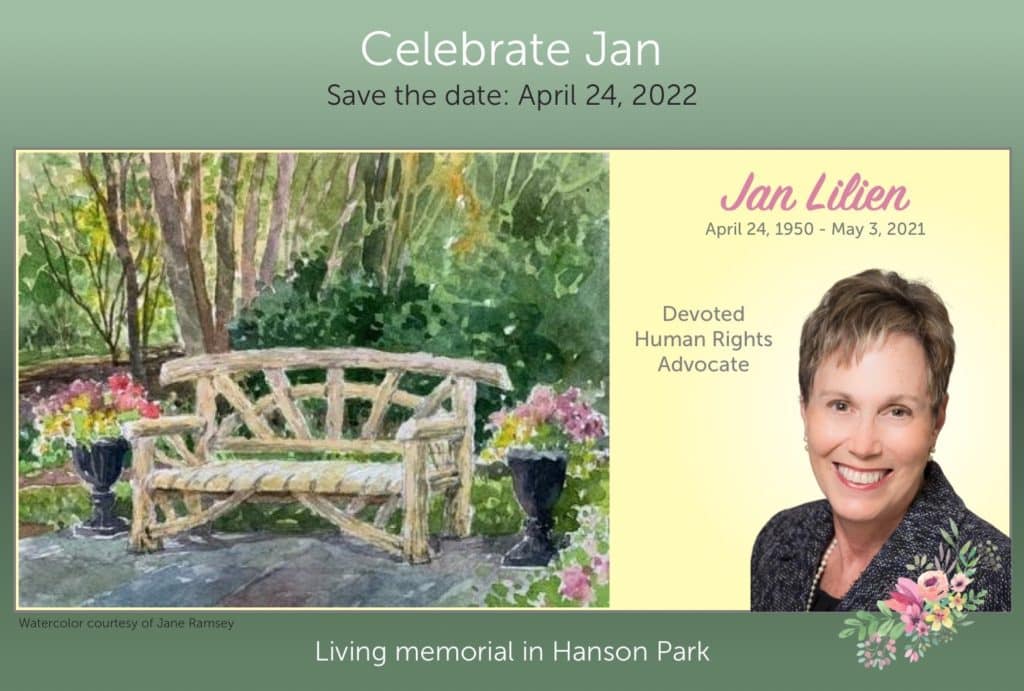
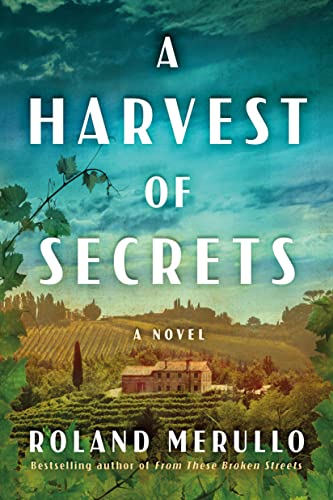
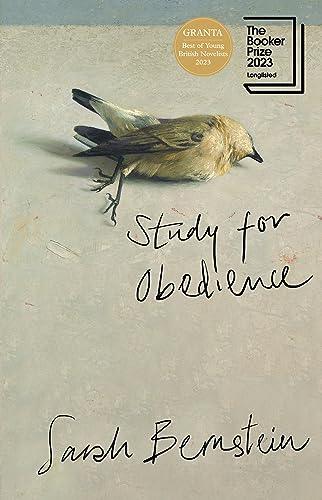
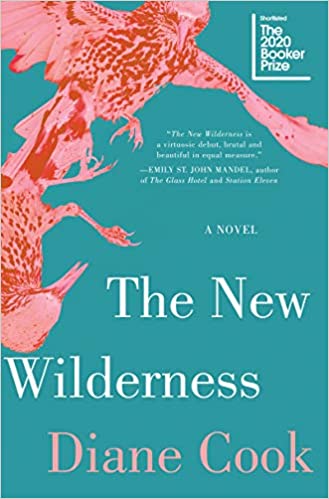
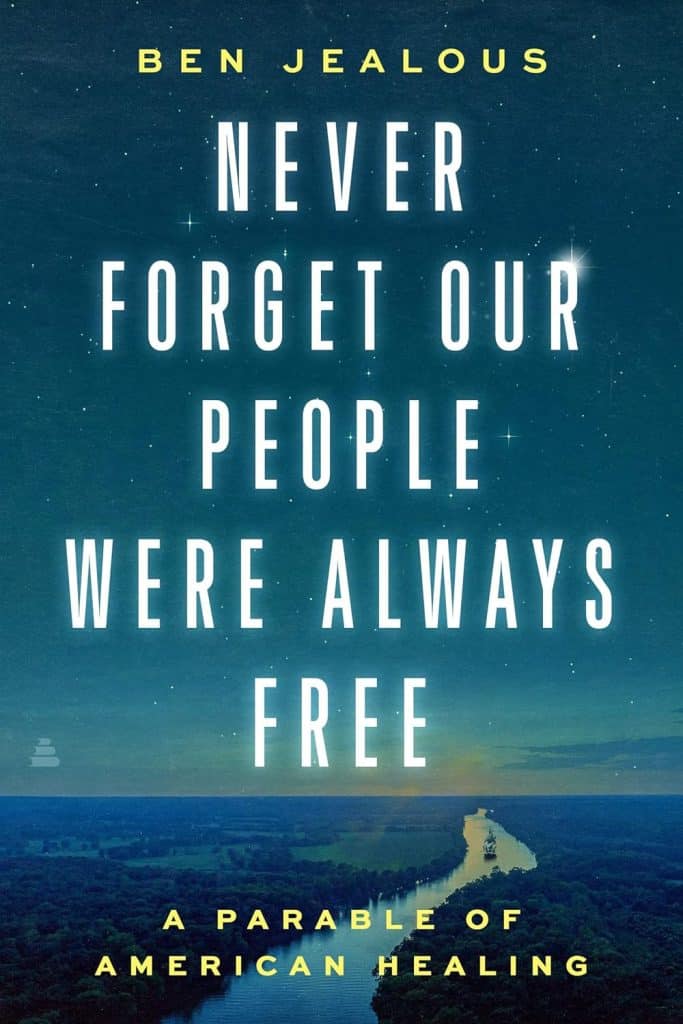
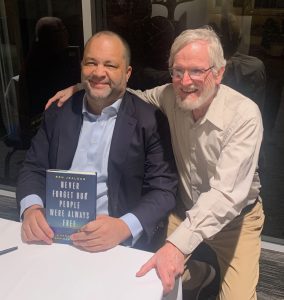
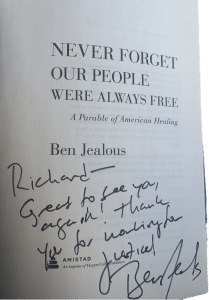 The book Never Forget Our People Were Always Free is told through parables. It features intimate glimpses of political and faith leaders such as Jack Kemp, Stacey Abrams, and the late Archbishop Desmond Tutu. The book also highlights unlikely heroes such as a retired constable, a female pirate from Madagascar, a long-lost Irishman, a death row inmate, and a man with a Confederate flag over his heart.
The book Never Forget Our People Were Always Free is told through parables. It features intimate glimpses of political and faith leaders such as Jack Kemp, Stacey Abrams, and the late Archbishop Desmond Tutu. The book also highlights unlikely heroes such as a retired constable, a female pirate from Madagascar, a long-lost Irishman, a death row inmate, and a man with a Confederate flag over his heart.